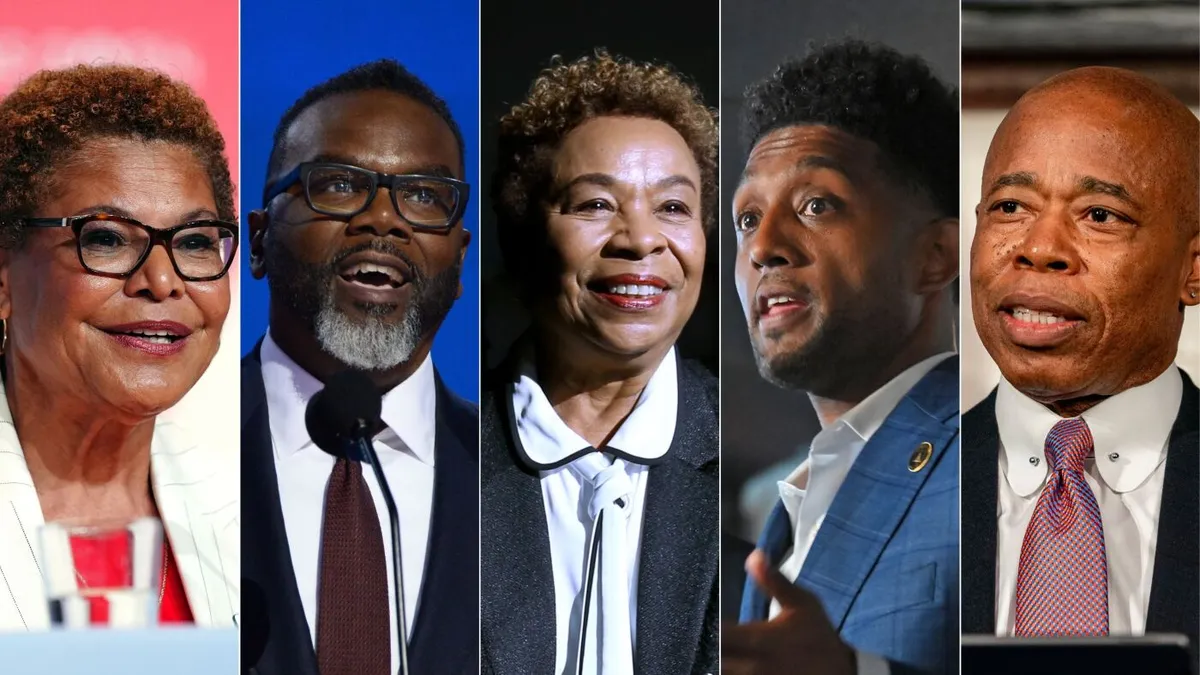
In a bold announcement, President Trump declared his intention to mobilize the National Guard in Washington, D.C., while suggesting that other liberal-leaning cities could be next on his list. Trump highlighted cities like Chicago, Los Angeles, New York, Baltimore, and Oakland as examples of areas he believes are facing severe crime issues. "You look at Chicago, how bad it is. You look at Los Angeles, how bad it is," Trump stated on Monday, emphasizing that these cities are suffering from significant crime challenges.
In response to Trump's remarks, the mayors of the cities he targeted—each of whom is a Black Democrat—have voiced strong opposition. They point to data indicating that crime rates are actually declining in their communities. Baltimore Mayor Brandon Scott remarked, "I think it's very notable that each and every one of the cities called out by the president has a Black mayor, and most of those cities are seeing historic lows in violent crime." Scott added that the president could benefit from learning from their experiences rather than casting disparagement.
Both Oakland Mayor Barbara Lee and New York City Mayor Eric Adams have firmly stated their refusal to allow federal law enforcement to commandeer their cities. "We're not going to allow a military occupation of the city," Lee told ABC7, framing the president's actions as an attempt to undermine democracy by militarizing urban areas.
The debate over Trump's authority to federalize local law enforcement has attracted the attention of legal experts. Chicago Mayor Brandon Johnson argued that Trump does not possess the legal power to federalize local police forces. "He is provoking on sending federal troops, the National Guard, into cities to plunder them, though those entities do not have policing power," Johnson commented. Legal scholars, including Rick Hills from NYU Law School, concur that Trump's actions in D.C. do not establish a precedent he can easily replicate in other cities.
Civil rights advocates have raised alarms about the implications of Trump's maneuvers in D.C. Maya Wiley, president and CEO of The Leadership Conference on Civil and Human Rights, described the actions as a potential "beta test for nationwide authoritarian control." Meanwhile, Monica Hopkins, executive director of the ACLU of D.C., warned that these tactics could set a dangerous precedent for federal intervention across the nation.
Despite Trump's assertions regarding rampant crime, data from D.C.'s Metropolitan Police indicates that violent crime is at a 30-year low, having decreased by 26% compared to the previous year. D.C. Mayor Muriel Bowser noted, "If the priority is to show force in an American city, we know he can do that here. But it won't be because there's a spike in crime." Similarly, mayors in other cities on Trump's radar reported significant drops in crime rates, with Baltimore experiencing a 28% decrease in homicides this year and Oakland seeing an overall crime reduction of 28% compared to last year.
While mayors acknowledge that crime remains a challenge, they assert that federal intervention should focus on collaborative efforts rather than militarization. In Chicago, Mayor Johnson highlighted a 15% decrease in crime compared to 2023, attributing the progress to community and police collaboration. However, he criticized Trump for cutting $158 million in funding for violence prevention programs, stating that support for such initiatives is crucial for further progress.
New York City Mayor Eric Adams echoed this sentiment, emphasizing the need for federal gun control legislation rather than National Guard deployment. "After telling reporters that homicides and shootings are down, as are all the major crime categories in the subway system, he acknowledged the importance of addressing gun control to enhance public safety.
The ongoing dialogue surrounding Trump's mobilization of the National Guard in D.C. raises critical questions about the balance of power, the role of federal intervention, and the realities of crime in major cities. As mayors push back against what they perceive as an overreach, they continue to advocate for collaborative measures that focus on community safety rather than military presence. The situation remains fluid, with the potential for significant political and social implications as the debate unfolds.